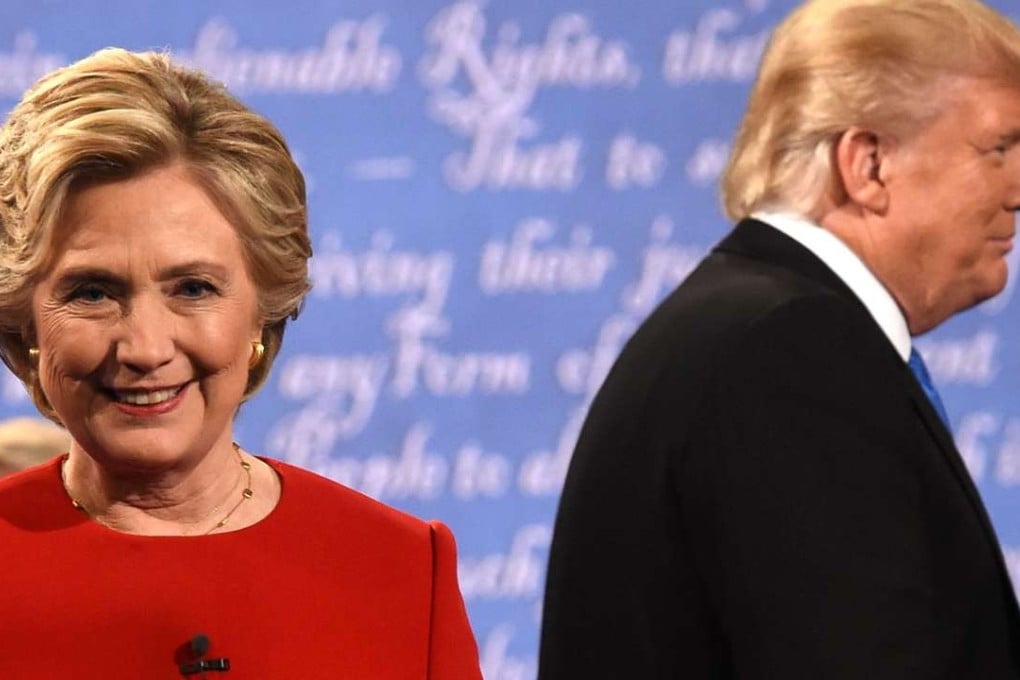China Briefing | Who would Beijing prefer as US president: Clinton or Trump?
Beijing might have to settle for the lesser of two evils

Would a Trump or a Clinton presidency be preferable from a Chinese perspective?
That question has come into a sharper focus following the first presidential debate between Donald Trump and Hillary Clinton last week.
The both candidates may not have agreed on much of anything but they appeared united on beating China like a piñata, with Trump leading the charge. The Republican candidate accused China of stealing American jobs, devaluing its currency to cheat at global trade, and failing to rein in North Korea, while his Democrat opponent pledged tough responses to possible cyberattacks from China and other countries.
Trump’s Chinese aspersions are nonsense
China-bashing has become a fashionable theme in US presidential debates over the past two decades, and is expected to feature again in the next two scheduled clashes between the candidates.
Handling China’s rising economic and military power will be one of the most complex challenges facing the next American president, so interest has been building in China as to which of the two would be preferable to ensure Sino-US ties, arguably the most consequential relationship between any two countries in the world, continue broadly along the lines of co-operation instead of confrontation.

Publicly, the Chinese leaders have refrained from weighing in despite the increasingly fiery attacks on China from both candidates. Last month, Premier Li Keqiang offered the standard textbook reply in a meeting with top US executives in New York by saying that the Sino-US ties were destined to improve no matter who is elected.
